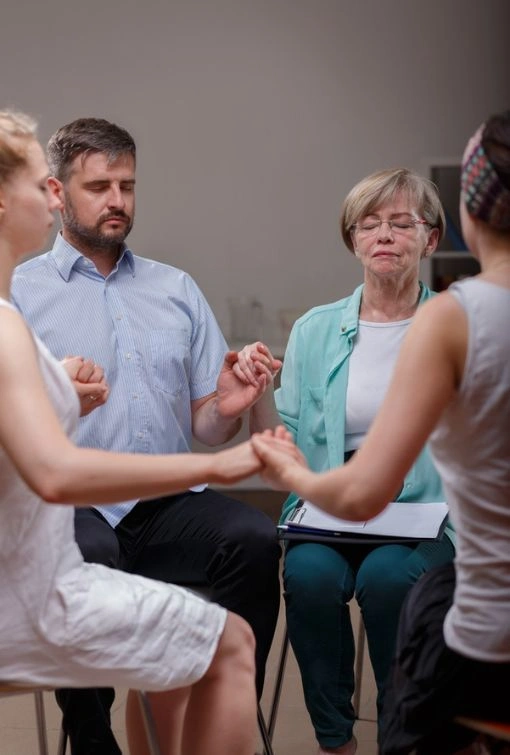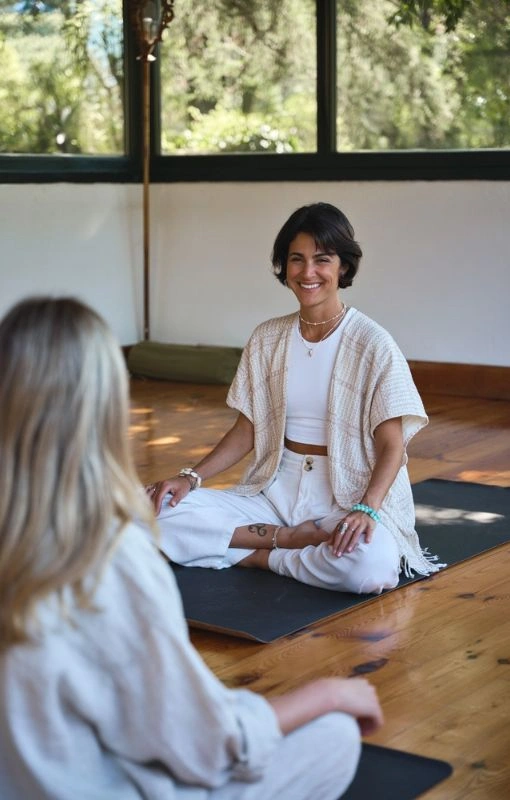Our Rehab Aftercare Programs at Changes
The Nature of Aftercare in Relapse Prevention and Our Offerings
Table of Contents
You might have thought that entering rehab was the biggest hurdle you would have to face when it comes to your substance abuse. However, you also need to consider what comes after you transition away from these intensive services. What does rehab aftercare look like in practice?
Addiction aftercare programs take many forms, but they all include some of the same basic elements, like continued day treatment and access to individual and group therapy. You’ll have an opportunity to practice coping skills and life skills, get help for mental health issues, and access community resources.
Changes Healing Center can help you wade through the options with our treatment center’s alumni program. We offer every service you might need to maintain sobriety after leaving the 24/7 care of rehab. Keep reading to learn more about the various components of addiction aftercare programs.
Addiction Aftercare in Our Alumni Programs at Changes
After completing treatment in our residential program, it’s time to start thinking about your new long-term recovery from drug and alcohol use. You need a safe and supportive environment where you can start to practice healthier coping strategies. Before you transition out of care altogether, you need a place to practice sober living.
Changes Healing Center can help with our intensive alumni programs.
Here are a few of the things you’ll learn to help you embrace sober living through ongoing therapy and self-care along your recovery journey.
Continued Support for Addiction Recovery with an Intensive Outpatient Program
When you leave a residential treatment program, most people aren’t quite ready to maintain sobriety on their own. Substance abuse is a serious issue that requires time to heal and considerable practice with healthier coping strategies. This is why partial hospitalization and intensive outpatient programs are so important.
Changes Healing Center offers a range of care options for anyone who is dealing with everyday life and needs addiction aftercare. Partial hospitalization is the most intense outside of inpatient rehab, allowing you to spend all day in our facilities. It’s usually the stepping stone between rehab and IOP when you are no longer a danger to yourself, but still need crisis intervention.
Intensive outpatient is a step down, allowing you to come and go at whatever times suit you. It’s great for anyone who needs minimal support and does not require around-the-clock monitoring to keep them safe and sober.
Both give you access to support groups and individual counseling that aid in the recovery process and provide ongoing support with a team of medical professionals and clinicians.
Intensive Therapy Sessions for Long-Term Recovery
An important component of aftercare programs is the continued need for therapy programs. You don’t want to go from 24/7 monitoring and daily counseling sessions to nothing at all. For many people, they find that they have more ground to cover once they leave rehab than they did while in treatment.
Changes Healing Center offers continued services for the recovery process. You’ll still have a chance to meet with your counselor one-on-one, but we’ll also continue to offer you access to recovery meetings.
Work closely with your treatment team when you leave our residential rehab facility so that they can help you make the difficult transition to a sober living environment.
Practice Implementing Coping Strategies and New Life Skills
Along with the need for intensive therapy and addiction medicine, you’ll also need to consider the skills required to return to your life outside of a rehabilitation program. Coping skills are the foundation you’ll require to get sober and stay sober. Whether this means practicing self-care, exercising, or engaging in holistic therapies, you should explore what works for you.
Life skills such as caring for your health and home are equally important in drug and alcohol addiction recovery. You can significantly benefit from learning the skills you need to cope with a substance use disorder. This type of training has been shown to decrease the risk of drug abuse.
Not to mention, having these skills at your disposal can give you the tools needed to prevent relapse and maintain a sober life.
Help for Mental Health Issues and Dual Diagnosis
It isn’t enough for you to have help with your alcohol and drug abuse. You also need a program that’s going to cater to your mental health issues and any dual diagnosis that you may have. Whether you’re struggling with depression, other mood disorders, anxiety, or something else, Changes has a team that considers the whole person.
Our comprehensive treatment plans will cover every aspect of your health and well-being. We’ll tailor your aftercare programs uniquely to your needs to help you get sober and stay sober.
As part of this, we may also help people with medication management. Our team of psychiatrists and medical professionals will monitor your progress and adjust your medications accordingly to progress. This allows you to get the help you need for these dual diagnosis issues.
Access to Community Support Groups in an Aftercare Plan

Support groups are an important piece of an effective treatment program while you’re with us at Changes Healing Center. It allows you to experience the camaraderie of other people in recovery who are walking the same path as you. This is an important piece of healing from substance abuse and entering addiction recovery.
The good news is that you’ll find plenty of recovery meetings in Twelve Step programs like Alcoholics Anonymous and Narcotics Anonymous. Phoenix is home to a wide range of meetings in these veins, giving you a place to go any day and any time you need it.
SMART Recovery is also an option with many virtual meetings around the world.
You may also continue with group counseling through our treatment center’s alumni programs as part of our PHP or IOP programs.
Seeking a Support System for Long-Term Sobriety
This is also the best time to consider whether you have people in your life who will support you outside of your treatment team. Close friends and family members will allow you to lean on them when you need help to remain sober. Not to mention, relationships are part of a fulfilling life.
Ongoing care should include some component of family involvement. Loved ones need to know what a significant accomplishment is to remain sober for an extended period. Plus, they’ll need to learn how to best support you in your recovery.
Of course, family therapy also helps heal rifts that might have been caused by your substance use issue and dual diagnosis. Many people hurt their loved ones in active addiction, and this can be a great way to restore some of those important relationships.
Sober Living Homes for a Secure Transition

Some people may not be ready to return home as part of an aftercare plan for substance use disorders. If you don’t have a support system in place or family members who are willing to help, you might require sober living homes to give you a safe environment to practice your new life skills.
Phoenix has several options for sober living homes where you’ll take up residence with others who face similar challenges. Not only is this a great way to connect with like-minded people in recovery, but it also usually provides you with more opportunities for group counseling and community programs like AA.
Long-term recovery will eventually require you to transition out of these homes, but they can be a great stepping stone as you plan your departure from rehab.
Reserve a Spot for Effective Treatment with Changes Healing Center
Changes Healing Center is committed to helping our clients maintain sobriety even when they leave our inpatient treatment center. It’s harder to face life without drugs and alcohol to turn toward, but we can ensure that you get the support necessary to thrive in your commitment to sober living.
Our enrollment team can answer any of your questions about rehab aftercare and the resources that are available to you in the Phoenix area. If you’re ready to seek assistance from a rehab facility for intensive outpatient programs or long-term residential rehab, we can answer your questions.
Let us talk with you about your options and verify your insurance benefits in a confidential phone call. It’s the first step to reserve a spot in our addiction treatment program!
References
- Khawaja, I. S., & Westermeyer, J. J. (2010). Providing Crisis-oriented and Recovery-based Treatment in Partial Hospitalization Programs. Psychiatry (Edgmont (Pa. : Township)), 7(2), 28–31.
- McCarty, D., Braude, L., Lyman, D. R., Dougherty, R. H., Daniels, A. S., Ghose, S. S., & Delphin-Rittmon, M. E. (2014). Substance abuse intensive outpatient programs: assessing the evidence. Psychiatric services (Washington, D.C.), 65(6), 718–726.
- Moshki, M., Hassanzade, T., & Taymoori, P. (2014). Effect of Life Skills Training on Drug Abuse Preventive Behaviors among University Students. International journal of preventive medicine, 5(5), 577–583.
- U.S. Department of Health and Human Services. (n.d.). Substance use and co-occurring mental disorders. National Institute of Mental Health.
- Donovan, D. M., Ingalsbe, M. H., Benbow, J., & Daley, D. C. (2013). 12-step interventions and mutual support programs for substance use disorders: an overview. Social work in public health, 28(3-4), 313–332.
- Mericle, A. A., Mahoney, E., Korcha, R., Delucchi, K., & Polcin, D. L. (2019). Sober living house characteristics: A multilevel analyses of factors associated with improved outcomes. Journal of substance abuse treatment, 98, 28–38.

